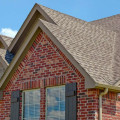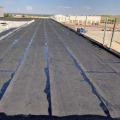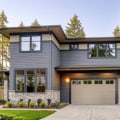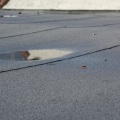Solar power can be installed on flat roofs, but you may need to add additional solar mounting to ensure your system is optimally installed. You can orient solar panels on flat roofs so that they face south and are at the optimal angle for energy production, maximizing renewable energy production for homeowners and commercial buildings. Yes, you can successfully install solar panels on the flat roof of your home or business. However, there are some challenges to consider.The short answer is yes, you can have solar panels on a flat roof.
It's a perfectly common option for businesses and homes looking for their own source of renewable electricity, and flat roofs attract a lot of direct sunlight, making it worthwhile to install panels. This will be one of your biggest challenges. When it comes to a sloped roof, solar panels can be placed flat against it. But the same can't be said for flat roofs.
Since the angular brackets allow for better exposure to sunlight and optimal energy production, specialized equipment will be required to mount the solar panels at an angle on a flat roof.When asking “can flat solar panels be installed? It's important to consider the variety of roofing styles and materials available, which are sometimes determined by the degree of “flat” the roof actually is. If your roof is in good shape and doesn't have large obstructions around it, such as trees, that can block the sun and decrease energy production, you can certainly install solar panels on a flat roof.
Solar panels
may be the smartest investment you've ever made to get your commercial building to produce energy.Solar panels
for flat roofs are no more expensive than a standard pitched roof installation. In fact, flat roofs are the perfect place for solar panels.Most of the solar panels we see in homes or small commercial buildings are of two types: mounted on a sloped roof or on a metal frame or pole mounted on the ground.But can solar panels be mounted on a flat roof? The answer is yes, and while it's a different process than the more common sloped roof installation, it's not more complicated or expensive, and it even has some key advantages. Installing solar panels on a flat roof is a great way to get the most value possible from the available surface and to make smart energy choices. In fact, Consumer Reports states that flat roofs are some of the best solar panels to power your home. They can be mounted flat on existing tiles without special supports to tilt them, or they can be installed with a slope greater than the roof on the south side to capture more sunlight.
Sloped roof panels
also require some maintenance, but they can be less than flat roof panels.Flat commercial roofs are considered flexible when it comes to designing the placement of solar panel systems. Partner with experts who know how to install solar panels at the optimal angle for sloped or flat roofs. It's not uncommon to see solar panel installations on all types of buildings, and having solar panels on a flat roof is no exception. If you choose this option, look for an installation contractor with experience designing and manufacturing ballasted systems for flat roofs. Because of this, flat solar panels may require additional cleaning and maintenance than panels mounted on sloped roofs.
While this happens due to improper installation, you must be very careful when installing photovoltaic modules on flat roofs. Central Roofing is a one-stop solution for all your solar panel and commercial roofing problems if you're in Los Angeles. These costs are lower on a flat roof, as it's safer and easier to access without the need for safety equipment. One of the main advantages of solar panels on flat roofs is that they offer great flexibility. The key is simply to find a local solar installer who works with flat roofs and can help you design your system accordingly.
If you are planning to install a flat roof solar panel, you should also know how old the roof is, as you may have to replace the roof once the system is already installed, a situation you would prefer to avoid.
solar panels will recoup their investment within seven to nine years.


